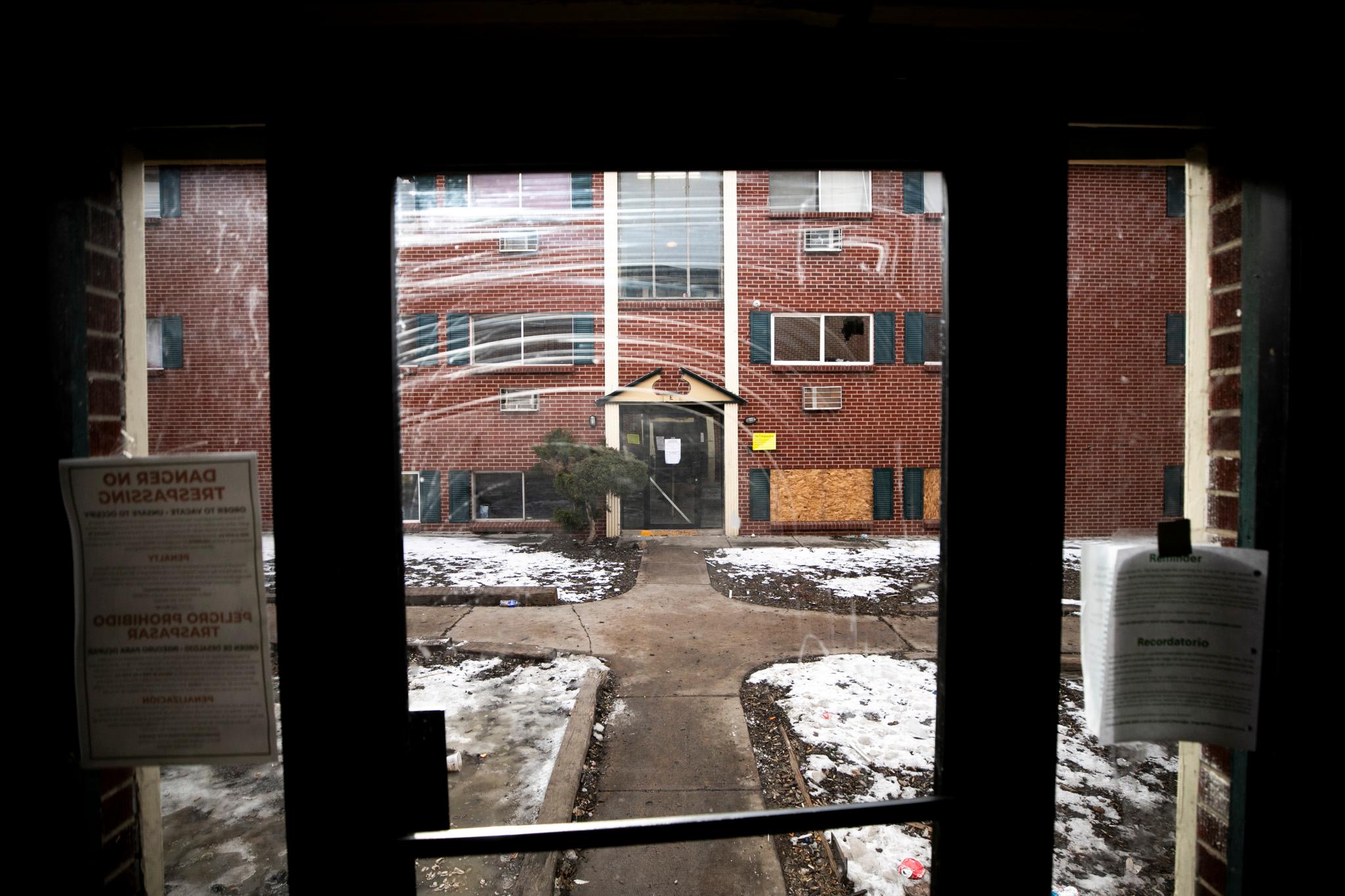Renting a place in Denver sometimes means suffering through miserable — and potentially dangerous — conditions.
There was the burst water pipe at the Welton Street Apartments last winter that left residents without running water for nearly a week, cooking meals from a dirty hose and using portable toilets in the alley.
Residents at an Uptown apartment complex owned by CBZ Management suffered failed heating, mold and broken locks.
Tenants at Mint Urban Infinity apartments in Virginia Village sued over broken elevators, air conditioning and doors, mountains of trash and a lack of hot water.
Now, Denver City Council members Shontel Lewis and Darrell Watson want the Department of Public Health and Environment to have more power in enforcing habitability laws and ensuring tenants are relocated to safe places until their homes are brought up to code.
The duo presented their policy fixes to Denver City Council’s Budget and Policy Committee on Monday afternoon.
The hope is to force Denver landlords to comply with the state’s tenant protections and mandate homes don’t endanger tenants' life, health or safety. If a home does put a renter at risk, landlords must provide relocation assistance if tenants request that.
The trouble, according to Lewis and Watson, is that too often non-compliant landlords simply ignore fines. Instead, they wait for courts to take action against them.
In the council members’ presentation, they claimed “gaps in Denver’s municipal code leave Denver renters in the cold and without relocation help.”
The city and state have some power under current laws.
DDPHE can placard a building — essentially declaring that it is uninhabitable — and force residents to leave. In doing so, the agency triggers state habitability laws, forcing the landlord to make repairs and potentially pay relocation fees, depending on how long the repairs take. But when tenants don’t receive relocation assistance from a landlord, the DDPHE action can also lead to displacement, as tenants have to take their landlords to court — a process that can be long and expensive.
Currently, DDPHE lacks the power to force a landlord to pay for relocation. To exercise that right, a tenant has to take a landlord to court..
The result: DDPHE can unwittingly displace residents or simply avoid placarding a building to prevent displacement, and as a result, leave tenants in unsafe conditions.
Watson and Lewis want to “give DDPHE the teeth to enforce state and local laws to protect renters,” according to their presentation.
Changes to city law would do the following, according to the presentation:
- DDPHE would have more oversight and ability to enforce habitability standards.
- Relocation assistance for tenants would be mandated when buildings don’t meet state or local habitability standards.
- If landlords fail to pay relocation fees and the city stepped in to do so, DDPHE would have the right to place liens to recoup costs.
Additionally, the new policy would allow DDPHE to request property management records during inspections, allow the agency to fine landlords and order them to fix habitability issues; and mandate landlords provide “reasonable accommodations,” if properties are uninhabitable, even if the agency does not placard the building.
If landlords decided not to pay relocation costs, the city could pay for it and recoup the money through a lien on the property. Through that, they would collect the cost of the accommodation plus another 5 percent of the cost of the accommodations.
What’s next?
Through the end of the month, the city will meet with tenant advocacy groups like the East Colfax Community Collective. That’s the organization that has helped hundreds of tenants find new homes after Aurora shut down CBZ Management’s apartments at the center of the Venezuelan gang controversy.
In February and March, the city will hold meetings with the landlord advocacy group, the Apartment Association of Metro Denver and individual property owners providing rentals.
In March, there will be an industry roundtable, discussing the reforms, and a presentation to council’s Safety Committee.
If all goes as planned, the full council will take up the issue and vote in April.











